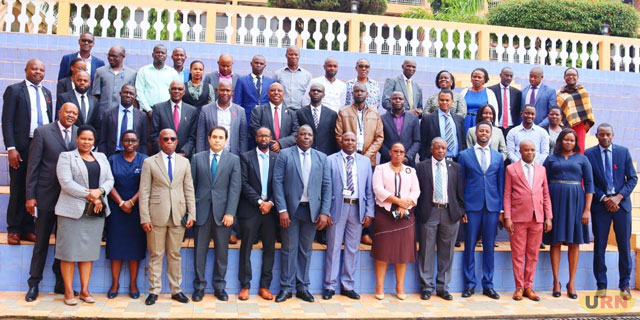
Kampala, Uganda | THE INDEPENDENT | A section of Buyende District leaders has asked government to conduct public awareness to address fears and growing misconceptions about the country’s nuclear power plant to be developed in the area.
In April 2015, Cabinet approved the Nuclear Power Roadmap Development Strategy to guide the development of 2,000MW nuclear power infrastructure to diversify the energy generation mix aimed at meeting Uganda’s growing demand for electricity for security and industrialization purposes.
After a feasibility study in 2019, the Ministry of Energy and Mineral Development identified Buyende as one of the eight potential sites in the country for the establishment of the sh34.359 trillion power plant. Other sites are Nakasongola, Kassanda, Kiruhura, and Lamwo District.
Last year, the Ministry of Energy contracted M/S Queensland & Leeds Consulting Engineers in association with Air Water Earth (AWE) Ltd, and Earth Link & Advanced Resources Development which conducted a strategic environmental assessment for the nuclear power program.
But Buyende Woman Representative, Mary Annet Nakato, has warned that the ongoing activities are being done without the knowledge and participation of the affected people. The legislators explained that speculators are peddling rumors about the potential dangers of the nuclear plant, consequently forcing people to sell off their land in order to vacate.
Michael Kanaku, the Buyende LCV Chairperson also confirmed that several activities are being implemented in the district without adequate knowledge of the population and implored the government to redeem its image by conducting public awareness creation.
However, Dr. Eng. Lammeck Kajubi, the President and Chief Executive Officer at M/S Queensland & Leeds Consulting Engineers refuted the claims. Kajubi said the Strategic Environmental Assessment (SEA) process involved various stakeholder consultations where a number of issues were scoped and integrated into their report.
The draft SEA report was presented at the validation meeting of different stakeholders held Thursday at Hotel Africana in Kampala. Several energy experts, representatives of Civil Society Organizations, Members of Parliament, and members of the academia also attended and raised pertinent issues relating to sensitization and compensation of project-affected persons.
Emmanuel Wamala, the Assistant Commissioner of Nuclear Fuel, and Radioactive Waste in the Ministry of Energy who represented the Permanent Secretary, Irene Pauline Bateebe in the meeting, said the plea of the leaders will be incorporated into the final report to guide further interventions.
Studies conducted by the Ministry, indicates that currently, the country’s energy sector comprises electricity generation from hydro, biomass, geothermal, solar, and peat potential, which if fully developed cannot meet the targets envisaged under Vision 2040.
In December 2021, the International Atomic Energy Agency – IAEA endorsed Uganda’s nuclear energy power plant development making the country one of the seven sub-Saharan countries to integrate nuclear energy as part of their energy mixes between 2030 and 2037. Other countries are Ghana, Kenya, Sudan, Rwanda, Zambia and Nigeria.
*****
URN
 The Independent Uganda: You get the Truth we Pay the Price
The Independent Uganda: You get the Truth we Pay the Price





